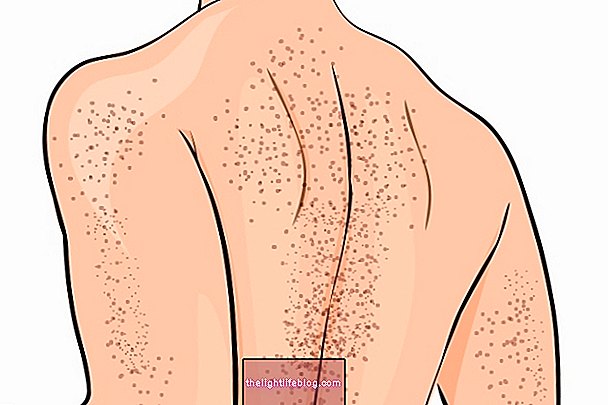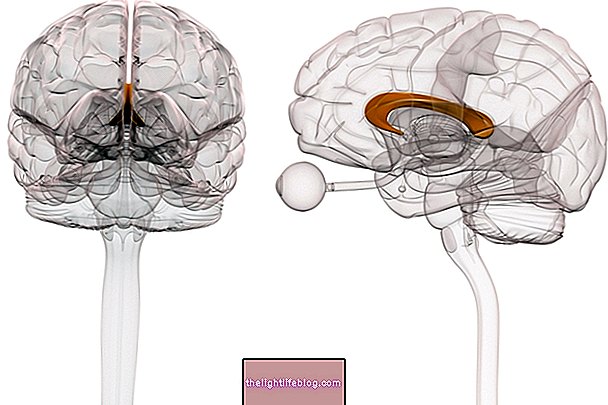Anosmia is a medical condition that corresponds to the total or partial loss of smell. This loss may be related to temporary situations, such as during a cold or flu, but it can also appear due to more serious or permanent changes, such as exposure to radiation or the development of tumors, for example.
As the smell is directly related to the taste, the person who suffers from anosmia usually also cannot differentiate the flavors, although he still has the perception of what is sweet, salty, bitter or sour.
Loss of smell can be classified into:
- Partial anosmia: it is considered the most common form of anosmia and is usually related to flu, colds or allergies;
- Permanent anosmia: happens mainly due to accidents that cause permanent damage to the olfactory nerves or due to serious infections that affect the nose, with no cure.
The diagnosis of anosmia is made by the general practitioner or by the otorhinolaryngologist by means of imaging exams, such as nasal endoscopy, for example, so that the cause is identified and, thus, the best treatment can be indicated.
-principais-causas-e-tratamento.jpg)
Main causes
In most cases, anosmia is caused by situations that promote irritation of the lining of the nose, which means that smells cannot pass and be interpreted. The most common causes include:
- Allergic and non-allergic rhinitis;
- Sinusitis;
- Flu or cold;
- Exposure and inhalation of smoke;
- Traumatic brain injury;
- Use of some types of medications or exposure to chemicals.
In addition, there are other less frequent conditions that can also result in anosmia due to a blocked nose, such as nasal polyps, nose deformities or the development of tumors. Some diseases that affect the nerves or the brain can also cause changes in smell, such as Alzheimer's disease, multiple sclerosis, epilepsy or brain tumors.
Thus, whenever the loss of smell appears for no apparent reason, it is very important to consult an otorhinolaryngologist, to understand what the possible cause may be and start the most appropriate treatment.
Can COVID-19 infection cause anosmia?
According to several reports from people who have been infected with the new coronavirus, loss of smell seems to be a relatively frequent symptom, and it can persist for a few weeks, even after the other symptoms have disappeared.
Check out the main symptoms of the COVID-19 infection and take our test online.
How the diagnosis is confirmed
The diagnosis is usually made by an otorhinolaryngologist and begins with an assessment of the person's symptoms and medical history, to understand if there is any condition that may be causing the irritation of the nasal mucosa.
Depending on this evaluation, the doctor may also order some additional tests, such as nasal endoscopy or magnetic resonance imaging, for example.
How the treatment is done
The treatment of anosmia varies widely according to the cause at the origin. In the most common cases of anosmia caused by colds, flu or allergies, rest, hydration and the use of antihistamines, nasal decongestants or corticosteroids are generally recommended to reduce symptoms.
When an infection in the airways is identified, the doctor can also prescribe the use of an antibiotic, but only if it is being caused by bacteria.
In the most serious situations, in which there may be some kind of obstruction of the nose or when anosmia is being caused by changes in the nerves or brain, the doctor may refer the person to another specialty, such as neurology, in order to treat the cause of the most appropriate way.
Was this information helpful?
Yes No
Your opinion is important! Write here how we can improve our text:
Any questions? Click here to be answered.
Email in which you want to receive a reply:
Check the confirmation email we sent you.
Your name:
Reason for visit:
--- Choose your reason --- DiseaseLive betterHelp another personGain knowledge
Are you a health professional?
NoMedicalPharmaceuticalsNurseNutritionistBiomedicalPhysiotherapistBeauticianOther
Bibliography
- NHS. Lost or changed sense of smell. Available in: . Accessed on 23 Mar 2020
- CDC. Taste and Smell Examination Component Manual . 2013. Available at:. Accessed on 23 Mar 2020
- NETO, Francisco X. P. et al .. Sensory Abnormalities: Smell and Taste - Review Article. International Archives of Otorhinolaryngology. Vol.15, n.3. 350-358, 2011
























